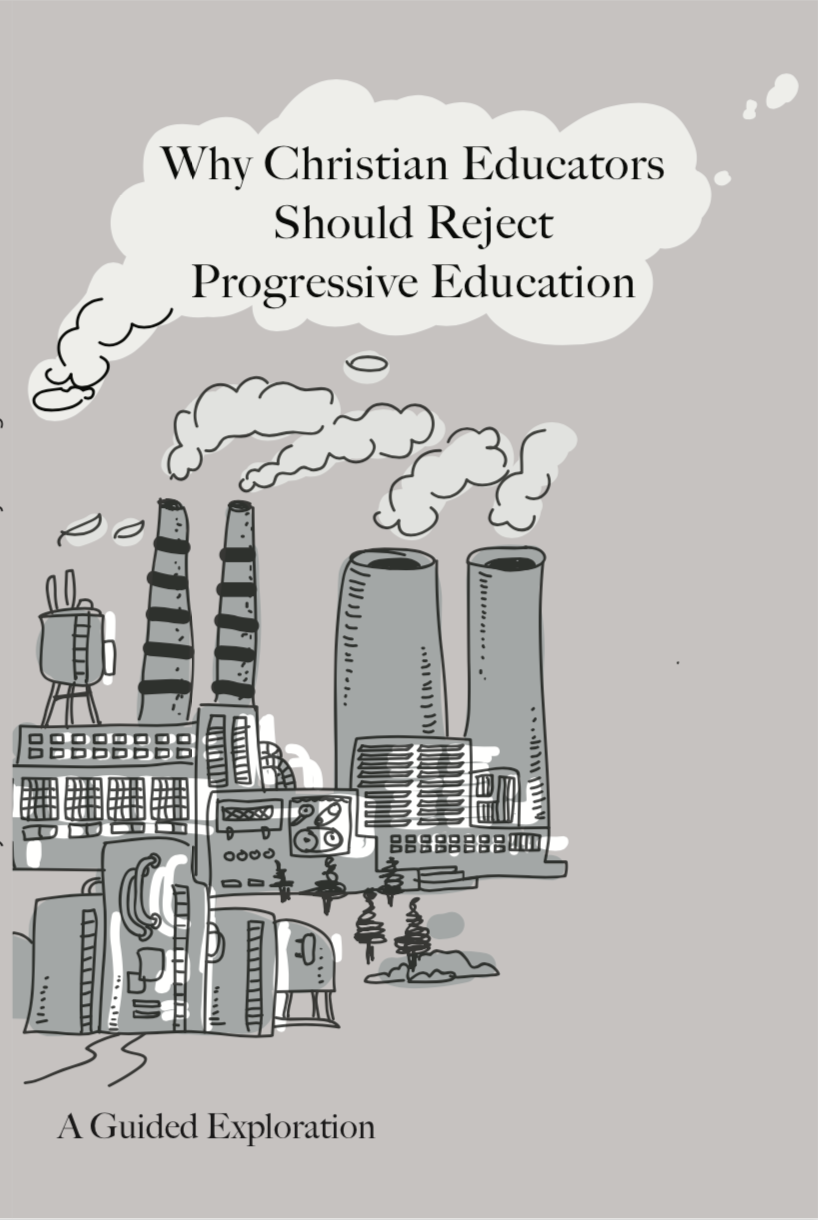
Why Christian Educators Should Reject Progressive Education
Overview: Have you ever wondered why schools resemble factories and students are defined in terms of their future jobs? This guided exploration takes you back to the early 20th century in America in order to understand the philosophical and practical implications that guide education today. Be prepared, though. Progressive education’s influence runs deep, and the impact on families and children for over a century have been ruinous.
Detailed Description:
The Guided Explorations Series holds a two-fold purpose: (1) To support educators, both classroom teachers and homeschooling parents, in their understanding of the nature and purpose of education (2) To strengthen educators in their pedagogy, that is, in how they instruct in the classroom or in the home. The uniqueness of this series is that it brings both goals into one experience for the educator. As educators move through the guided exploration, they will be deepening their understanding of the nature and purpose of education, all the while, having modeled for them a healthy pedagogical approach. This embodiment of proper pedagogy is important for the development of educators. Too often, when “training” educators how to “teach,” we fail to model the very things we are asking of them in our “trainings.”
This particular guided exploration focuses on a critical evaluation of modern, progressive education and its implications in the formation of children by studying a speech given by Woodrow Wilson on January 9, 1909 to the New York City High School Teachers Association. At the time of the speech, Woodrow Wilson was President of Princeton University. He would subsequently be elected as the governor of New Jersey and then the President of the United States. This particular speech addresses the social crisis that Wilson believes America is facing and how education offers the solution to this crisis. In his evaluation, Wilson offers us a rich description of the current state of the culture and education and how America must reform education in order to meet the social challenges of his time and into the future.
As you begin this guided exploration either as a group or by way of individual self-study, we at Forgotten Lighthouse should note that one key to successful learning is patience. So often, we approach education as a task to be completed rather than an experience to be immersed within. Stated another way, we prefer quantity over quality, always ready to move to the next thing to conquer. We invite you here to choose the latter. Taking time to read and reflect on the ideas presented, on your own thoughts regarding education, and on how you teach are at the center of these guided explorations. Be willing to be challenged by new ideas and see education as a craft to be nurtured and not a skill to be mastered. As such, allow time to provide thoughtful responses to the questions and create opportunities to discuss the ideas that emerge from the guided explorations with others. At Forgotten Lighthouse, we believe group discussion, although not necessary, is a valuable part of maximizing the experience of these guided explorations. In addition, be willing to allow time between each part. Again, do not rush. This approach will allow for more reflection in between parts. Depth, not breadth is the focus of these guided explorations. So, relax into the readings and activities with a firm commitment to growth as an educator.
Back